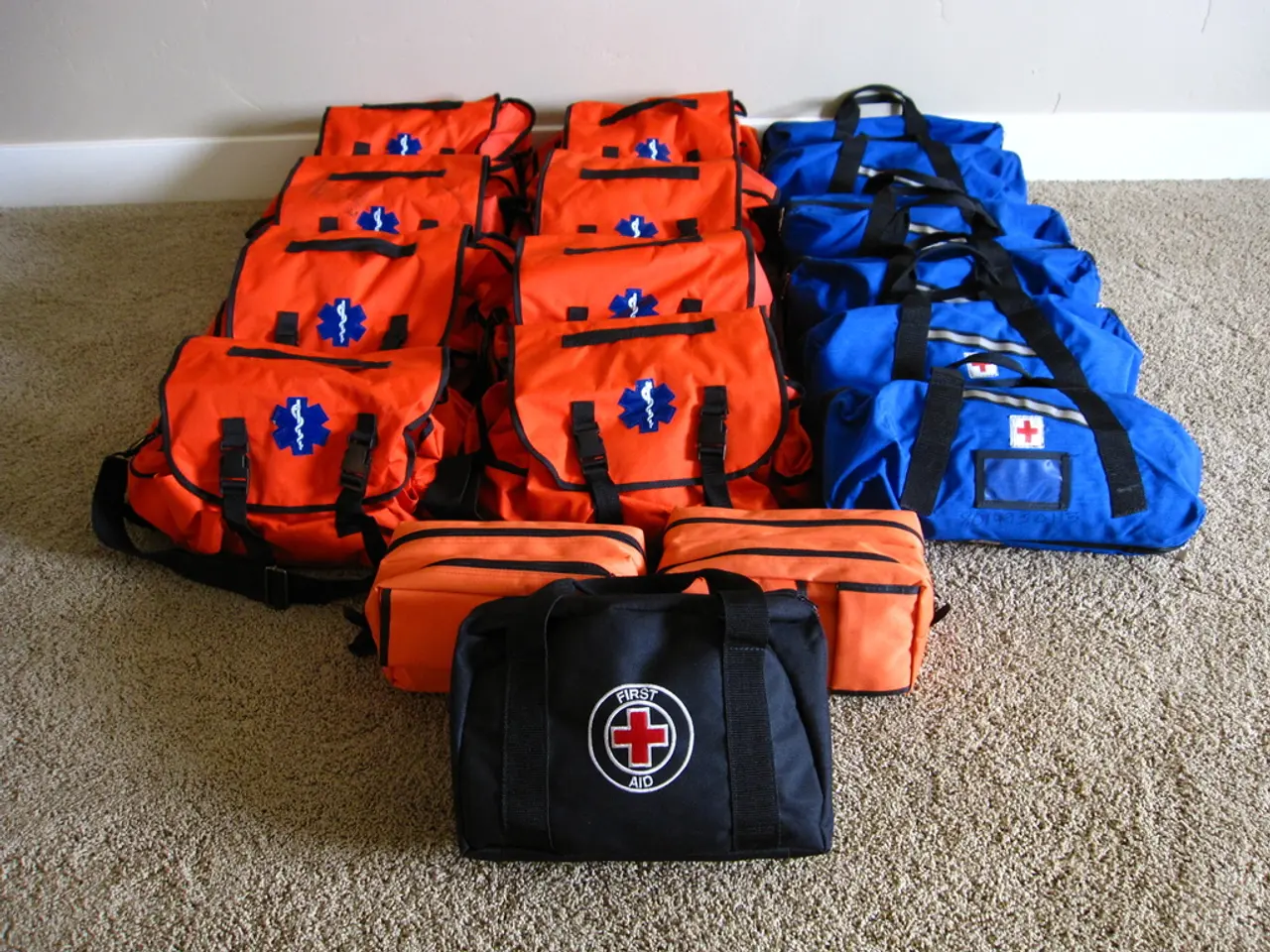Communities grappling with the unpredictable aftermath of Trump's latest policy shifts
In early 2025, the Trump administration implemented a foreign aid freeze, suspending U.S. development and humanitarian assistance programs worldwide. However, the Philippines has been a rare exception, managing to secure some continued aid despite the freeze.
The Philippines' Exemptions
The Philippines has twice secured exemptions from the U.S. aid freeze. The first exemption allowed for the retention of $500 million in military support aimed at modernizing the Philippine defense forces. More recently, following a meeting between Philippine President Ferdinand Marcos Jr. and U.S. President Donald Trump on July 23, 2025, the Philippines obtained a P3 billion (approximately $60 million) grant exemption from the freeze. This aid is focused on key sectors such as transport, logistics, energy, and semiconductors, with the aim of attracting investment and generating jobs locally. The U.S. Department of State has also committed to work with Congress for an additional allocation of about $15 million to support these sectors.
This aid exemption underscores the strategic partnership between the two countries, with the Philippines being the U.S.’s “oldest and only treaty ally” in the region.
Global Implications
The Trump administration’s freeze has caused considerable negative impacts globally, including interruptions in humanitarian aid, security lapses, and halted development projects, especially USAID programs which have been largely cut or dismantled. Countries like Colombia and Sri Lanka have seen humanitarian demining and repatriation efforts suffer, leading to increased casualties and security vulnerabilities. Small island nations in the Pacific have experienced the complete cessation of USAID programming, severely disrupting health, HIV, and humanitarian projects.
The logic behind the freeze is to focus aid strictly on programs aligned with U.S. national security interests. However, the approach of fully halting programs before recalibration has resulted in significant operational and humanitarian setbacks.
Future Implications for the Philippines
The exemptions indicate a recognition of the Philippines’ strategic importance and a selective continuation of assistance despite the overall freeze. Future U.S. aid to the Philippines appears geared towards economic development and defense modernization, supporting strategic and economic objectives rather than broader development or humanitarian programs. Sustained cooperation may depend on ongoing diplomatic engagement and alignment with U.S. interests.
However, uncertainties remain about the long-term stability of this aid, given the overall restrictive U.S. aid policies and their impact on global initiatives.
Local Impact
HIV prevention groups and LGBTQ+ rights groups have reported the impact of the aid freeze on their projects, including life-saving HIV testing and a community space for transgender persons. A community chat was held to discuss innovative solutions to perennial flooding, getting rid of the padulas system, and improving public health.
Meanwhile, a Baguio shelter called Sunflower Centennial Halfway Home for Boys helps abused boys rebuild their lives. An election kapihan is happening on Sunday, February 9, focusing on the city of Marikina. The Philippines' education spending is not sufficient to address the learning crisis.
Runners and mobility advocates are pushing for more safe spaces for pedestrians, and many Philippine groups that had to pause their U.S.-funded projects are not hopeful about the rescinded memo.
Sources: [1] Rappler. (2025, July 24). US government grants P3 billion to Philippines despite aid freeze. Retrieved from https://www.rappler.com/nation/280185-us-grants-p3-billion-philippines-despite-aid-freeze [2] Devex. (2025, January 30). Trump's foreign aid freeze: What it means for global health. Retrieved from https://www.devex.com/news/trump-s-foreign-aid-freeze-what-it-means-for-global-health-97252 [3] The Diplomat. (2025, July 26). The U.S. grants $60 million to the Philippines despite the aid freeze. Retrieved from https://thediplomat.com/2025/07/the-us-grants-60-million-to-the-philippines-despite-the-aid-freeze [4] Foreign Policy. (2025, January 31). The Impact of Trump's Foreign Aid Freeze. Retrieved from https://foreignpolicy.com/2025/01/31/the-impact-of-trumps-foreign-aid-freeze/
- The Philippines' strategic partnership with the U.S., as the Philippines' "oldest and only treaty ally" in the region, allowed for the retention of $500 million in military support and a P3 billion (approximately $60 million) grant exemption from the aid freeze, aimed at key sectors such as transport, logistics, energy, and semiconductors.
- The aid exemption underscores a focus on economic development and defense modernization, supporting strategic and economic objectives for the Philippines, rather than broader development or humanitarian programs.
- However, the Trump administration’s foreign aid freeze, causing interruptions in humanitarian aid, security lapses, and halted development projects, has negatively impacted countries like Colombia and Sri Lanka.
- Small island nations in the Pacific have experienced the complete cessation of USAID programming, severely disrupting health, HIV, and humanitarian projects.
- Domestically, the aid freeze has affected organizations such as HIV prevention groups and LGBTQ+ rights groups, impacting life-saving HIV testing and community spaces for marginalized groups.
- Meanwhile, the Baguio shelter, Sunflower Centennial Halfway Home for Boys, continues to help abused boys rebuild their lives, and a Marikina city election kapihan is happening on Sunday, February 9.
- The Philippines' education spending is not sufficient to address the learning crisis, and many Philippine groups that had to pause their U.S.-funded projects are not hopeful about the rescinded memo, while runners and mobility advocates are pushing for more safe spaces for pedestrians.




